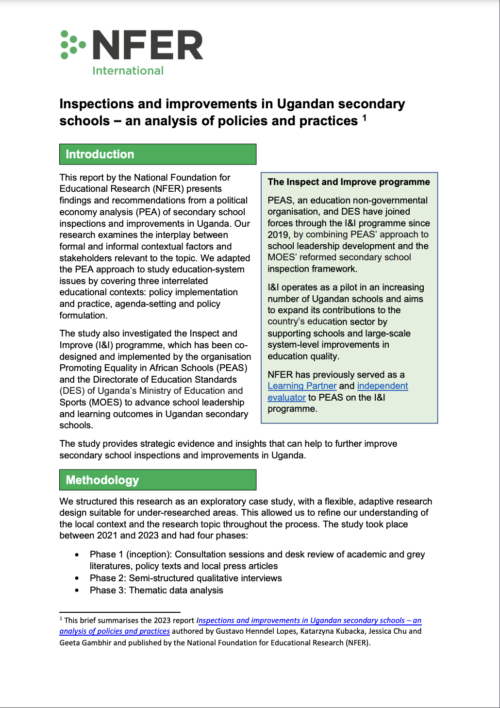Key Findings
- Secondary school inspections are a core school improvement mechanism whose outcomes depend on very context-specific factors.
- The needs, facilitators and barriers faced by the different types of Ugandan secondary schools influence the ability of inspections to drive improvements.
- For a school to improve, there often needs to be extensive coordination between stakeholders at different levels of the education system, including school leaders, school staff, school communities, district officials, school inspectors, MOES divisions and policymakers.
- Improving secondary school quality at scale requires consideration of the ability of the secondary education sector as a whole to facilitate improvements.
- The I&I programme has set a benchmark for secondary education quality and accountability in Uganda.
- I&I’s ability to scale up, influence education policy and practice and effect widespread system-level change will depend on resource levels and the programme’s ability to work with and through the Ugandan education sector’s governance system.
